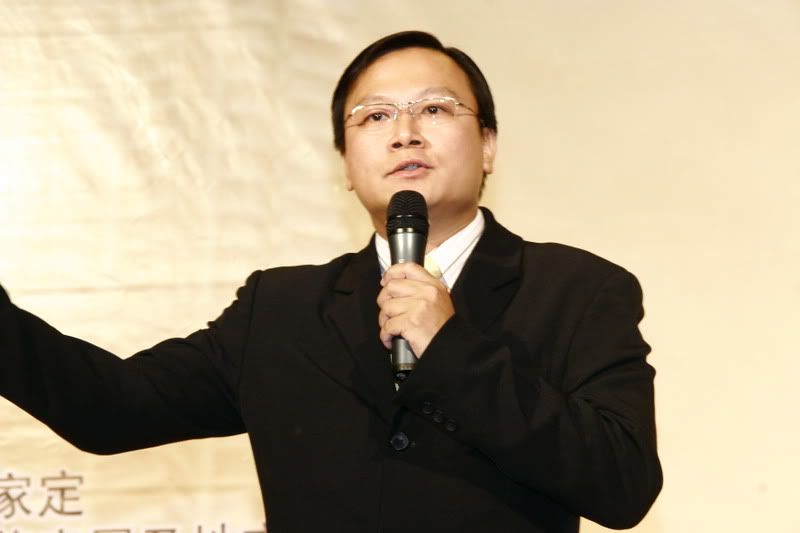
IS THIS THE “HARD FLOOR” IN CRUDE OIL?
Is oil going below $50 a barrel in 2007? Or above $100? And what should I do with the answer?
Frankly, nobody knows for sure where the price of oil is going. We can only say crude oil remains above the “hard floor” provided by the $57-$61 a barrel range.
And here’s our guess for why that floor exists: Most of the world’s cheap oil has already been found... and we’re left searching for petroleum in places where communist idiocy and guerilla warfare rule the day. Venezuela, Sudan, and Nigeria come to mind.
Also coming to mind is the extraordinary profitability of the world’s supermajor oil companies. When oil is at $40 a barrel, companies like Chevron make fortunes. When oil is at $60 a barrel, the profits are so large John Rockefeller himself would be astounded.
Friday, December 15, 2006
IS THIS THE “HARD FLOOR” IN CRUDE OIL?
Posted by
Sean Lee
at
Friday, December 15, 2006
![]()
Labels: Market Watch 1
Wednesday, December 13, 2006
Understand the Compounding Effect of Money
Understand the Compounding Effect of Money
The compounding effect of money is extremely important when making any financial decision. The compounding effect of money is often overlooked or underestimated by people when making decisions. When applied to all of your financial decisions, this effect is the KEY to long-term success! To illustrate the compounding effect of money, let me use some financial examples:
Suppose you had invested $1,000 today in a 5% savings account. In one year, that account would be worth $1,050 [$1,000 + ($1,000 x 5%)], yielding a $50 gain. However, in year two, that same initial investment would be worth $1,102.50 [$1,000 + ($1,000 x 5%) + ($1,050 x 5%)], yielding a $52.50 gain. And in year three, the same $1,000 would be worth $1,157.63, yielding a $55.13 gain. By year ten, the initial $1,000 investment would be worth $1,629 and by year 25 it would be worth $3,386.
From looking at this example, you can see that investing $1,000 today is much more valuable than investing $1,000 even a couple of years from now. To accumulate wealth, you MUST use the time value of money and the compounding effect of money to your advantage.
This second example shows how the compounding effect can work against you:
Suppose you borrowed $20,000 to purchase a car and your auto loan was at a 10% interest rate (for 5 years). Your monthly payments would be $424.94. Because the $20,000 loan continues to compound over the life of the loan, you actually pay $25,496.45 over the five-year period, meaning that you’ve in essence paid $5,496.45 because you spent the money before you had it. In fact, in your initial payments, the interest alone will account for almost 40% of your monthly payments. In this case, the bank or lender that gave you the loan uses the time value of money to their advantage.
Now look at this scenario, where instead of making the $424.94 car payment, you invest that payment at the same rate as what your car loan was (granted it’s a little high for a savings rate, but not unreasonable for other investments). Now, instead of paying the bank, you are actually earning interest and compounding the benefit yourself. After one year you will have saved $5,340 and have earned $240 in interest. After two years, you will have saved $11,239 and have earned $1,039 in interest. By the third year, your investments will be worth almost $18,000 and you will have earned $2,457 in interest. By month 40, you will have enough money to purchase a $20,000 car in cash!
So let’s weigh the differences between the two scenarios above. In the first case you paid the bank $5,496 to borrow the money and in the second case you earned $2,457 and could buy the car in cash after just 40 months (just over 3 years)! The opportunity cost of the first alternative versus the second alternative results in a net difference of $7,953 (a $2,457 gain versus a $5,496 loss). That means that by making a simple deferral decision (buying the car in 3 years versus today), you can get ahead by almost $8,000!
Posted by
Sean Lee
at
Wednesday, December 13, 2006
![]()
Labels: Money 2
理财规划知多少?
理财规划知多少?
你知道最近流行的话题是什么吗?汽油起多少?哪里有大减价?钱不够用?有多少张信用卡?这些茶余饭后的话题其实已牵涉到个人的理财观。为什么个人理财这课题会在最近几年被炒得轰轰烈烈?也越来越多人寻找财务规划师的协助呢?是否因为近代人的薪水提升了,所以要好好地规划或恰恰相反?且来看看财务规划的起源。
在1929年至1933年期间,美国发生了银行挤克危机和股市大灾难,人们因此对银行和券商丧失了信心,并开始担心未来的生活。因此,市场上就出现了各种保险,以满足不同顾客的需求。在竞争之下,保险经纪开始为客户做简单的个人生活规划和提供有关资产应用的咨询。慢慢地,他们就由最初的经济理财师(Economic Planner)逐渐演变成财务规划师(Financial Planner)。接着,战后的经济开始复苏,人民的薪资也跟着提升,这促使了财务规划业晋升为热门的新兴行业。
此外,以下也是个人理财被重视的原因:
(一)金融业蓬勃发展、投资和理财工具多元化、股市行情起伏不定,个人理财知识却有限,人民因此寻找专业人士的协助。
(二)在社会保障和公共福利政策的改变下,人民担心退休金不足以应付通货膨胀,无法安享晚年。
(三)各种制度的产生如医疗制度、教育体制、住房制度等等都增加了人民的支出。
(四)后人不知道该如何处理亲属所遗留下的遗产。
因此,个人理财不单单只是钱赚得越多,烦恼也相应越大的问题。个人理财涉及多个方面,其中包括了个人收入和支出的管理、职业生涯规划、各种投资计划、购屋买车、结婚生子、子女教育规划、退休计划和遗产规划等等。由此可见,个人理财其实是一个长远的学习过程,不同的人生阶段需要不同的财务规划,例如20岁的大专生要为教育费伤脑筋、30岁开始进行投资、40岁则规划退休后的生活。
在制定财务规划时,个人的生活方式、家庭状况、价值观和职业状况也是考量的因素之一。一个收入4千的经理追求高素质的生活,驾名车、买名牌,对钱财的使用把持着有多少花多少的态度,最终还陷入了卡债的困境中。然而另一个薪水只有2千的销售员却运用他的理财知识进行小额投资,并慢慢累积自己的资产。
由此可见,薪水不是唯一决定个人财富的多寡。十多年的学校教育似乎只注重于培育某个行业的专才,如医生、律师、会计师等等,但却没有教导我们“钱是
什么?钱如何运作?如何以钱生钱?”等理财知识。因此,惟有通过精细的财务规划,并使用适当的投资工具去为自己的资产增值,才能达到财务自主和财务保障。
“这个月吃了几餐Sushi King,明天要吃面包省钱。”个人理财的理念也并非要你省吃俭用,而是如何在维持现有的生活水平之下,依然可以有资金去进行投资。因此,财务规划是很个人的,拥有同样薪水的人可能对生活的素质有着不同的期盼,只有自己亲身去了解、制定、实行,才能有意外的收获!虽然现今社会充斥着各种理财资讯,但是依然有很多人对理财一知半解,也不知道如何将它应用在实际生活上,甚至有人尝试理财但失败后,而选择“自暴自弃”,不再多管自己的钱财,任其“自生自灭”,赚多少就用多少。
因此,本专栏希望可以用深入浅出的方式带出理财的知识,对于那些对理财一窍不通、不是商科出身的人也可以尝试了解自己的财务状况,确定自己的阶段性理财目标,并运用各种理财工具,例如储蓄、股票、证券、房地产等累积更多的财富。唯有这样,我们才可以早日达到财务自主和保障,并为未来的退休生活铺路。
_____________________________________________________________________
李国源先生是奧士卡国际财富咨询有限公司的执行总裁。奧士卡是在大马证券监督委员会(Securities Commission)之下注册的财务规划公司. 他也是大马证券监督委员会的合法投资代表(财务规划). 他的专长在于为个人、企业和富裕人士提供财务规划的服务.
Posted by
Sean Lee
at
Wednesday, December 13, 2006
![]()
Labels: Money 1






![[Most Recent Exchange Rate from www.kitco.com]](http://www.weblinks247.com/exrate/24hr-euro-small.gif)
![[Most Recent Exchange Rate from www.kitco.com]](http://www.weblinks247.com/exrate/24hr-jpy-small.gif)